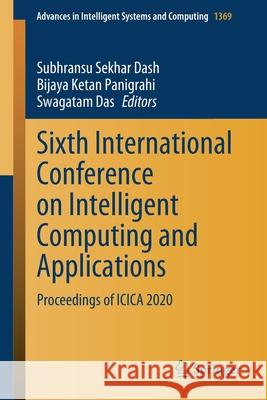Sixth International Conference on Intelligent Computing and Applications: Proceedings of Icica 2020 » książka
topmenu
Sixth International Conference on Intelligent Computing and Applications: Proceedings of Icica 2020
ISBN-13: 9789811613340 / Angielski / Miękka / 2021 / 595 str.
Kategorie:
Kategorie BISAC:
Wydawca:
Springer
Seria wydawnicza:
Język:
Angielski
ISBN-13:
9789811613340
Rok wydania:
2021
Wydanie:
2021
Numer serii:
000453356
Ilość stron:
595
Waga:
0.84 kg
Wymiary:
23.39 x 15.6 x 3.15
Oprawa:
Miękka
Wolumenów:
01
Dodatkowe informacje:
Wydanie ilustrowane











